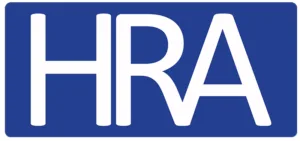A brief interview with HRA Fellow Marc-David Seidel
HRA: How has HIBAR research influenced your career?
Seidel: I have long been fascinated with the intersection of technology and society, having worked with the creator of the first Campus-Wide Information System (CUInfo) and the first online counseling service (Dear Uncle Ezra) well before HTML and the web existed. Prior to the commercialization of the internet, while procrastinating on my dissertation about strategic shifts in the airline industry, in an effort to “get back up to speed on the emerging HTML technology” I accidently created the first online airline portal (Airlines of the Web). That curiosity-based procrastination and interaction with non-academics developing web technologies led to my heavy involvement partnering with the non-academic community of people bringing travel online and learning about all of the strategic and organizational challenges we did not have organizational theories to address. As the consumer internet started to commercialize, I was particularly struck by the interaction of those communities interested in online community-enabled communication and those interested in online profit. That experience of seeing how communities formed online around a common interest, and working actively with those creating the new online world outside of academia, led me a bit later to co-creating the first crowdsourced telecom consumer information rates and fees database (ABTolls) with a mission of helping people get the best consumer information possible. With that effort we built on organizational theoretical advances to design a cooperative community that helped hundreds of thousands of consumers navigate the terribly complex world of telecommunications services and coordinate pressure on telecoms to have more truth in pricing. Those experiences led to a major portion of my organizational theory research about alternative forms of community based organizing.
Similar to when I first learned of HTML in the early 1990’s, when I first learned of blockchain I once again felt the need to “get back up to speed” and have immersed myself in the growing communities of people working on such distributed trust technologies. One of the first HIBAR Research Alliance Clusters at UBC, Blockchain@UBC, is a direct result of that involvement. I continue to hope insights from organizational theory can help to shape our joint future so that the societal impact of this new technological shift is designed in such a way to ensure a better more equitable future for all driven by solid theoretical advances as well as practical solutions.
HRA: What impact do you hope the HIBAR Research Alliance will have on the overall research ecosystem?
Seidel: The world needs research breakthroughs more than ever before, yet many aspects of the academic research system have devolved into an instrumental career focused game. This loses the bigger picture of the purpose of research – which is to help society improve through discovery. My hope is that the HIBAR Research Alliance can be part of facilitating a broad change in the entire research ecosystem so that as a society we continue to be able to generate useful research advances that address societal challenges, instead of focusing predominantly on individual researcher career advancement. We have an opportunity to steer things back in a good direction, and the HRA is one key part of the broader effort to transform the entire research ecosystem.
